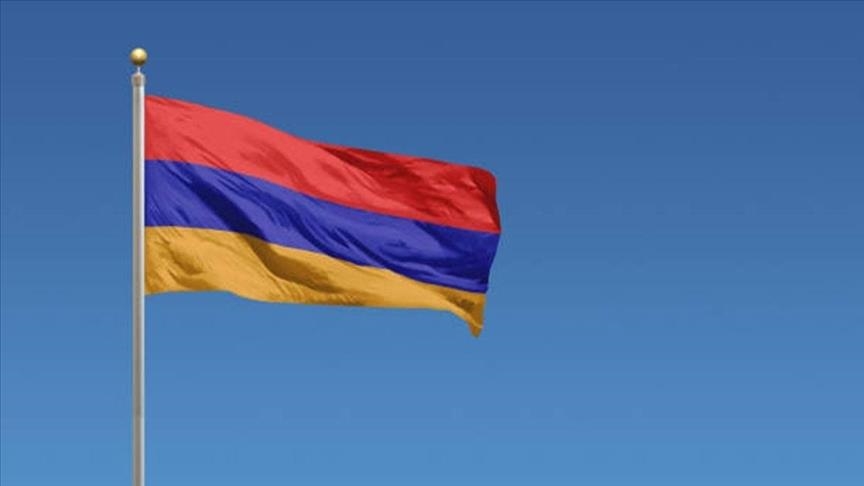Armenia ready for ‘full normalization’ with Türkiye, welcomes ‘positive dynamics’
Deputy Foreign Minister Vahan Kostanyan speaks to Anadolu about Armenia-Türkiye normalization, Palestine recognition, calls for UN reform

NEW YORK
Armenia is pleased by the “positive dynamics” in the normalization process with Türkiye and is ready for “full normalization” of relations, a senior Armenian diplomat told Anadolu.
The comment came after a meeting Tuesday between Turkish President Recep Tayyip Erdogan and Armenian Prime Minister Nikol Pashinyan in New York.
“We are happy with the positive dynamics that we have on Armenia-Türkiye normalization, but we do believe that there is much more that can be done, especially when it comes to the full normalization of relations and opening of the border and the establishment of diplomatic relations,” Vahan Kostanyan, Armenia's deputy foreign minister, told Anadolu on the sidelines of the UN General Assembly (UNGA) in New York.
Kostanyan described the talks between Erdogan and Pashinyan as "quite positive," with both leaders showing a "readiness to understand each other’s positions."
He noted previous agreements on issues such as the opening of the border for third-country citizens and diplomats -- an arrangement reached in July 2022 during the fourth round of normalization talks in Vienna.
“We reconfirmed, once again that Armenia’s side is ready. We did all the infrastructure and technical work preparation needed, and we are ready to proceed to realize the agreement,” said the senior diplomat.
After the meeting in New York, Erdogan noted Pashinyan's "positive approach" toward resolving long-standing issues between Armenia and Azerbaijan.
After the collapse of the Soviet Union, Türkiye was among the first countries to recognize Armenia’s independence on Sept. 21, 1991. But in 1993, Türkiye closed its border and cut ties after Armenia's occupation of Karabakh.
Following the 2020 Karabakh war, which saw Azerbaijan regain territory, Turkish-Armenian relations entered a new phase, and in December 2021, both countries appointed special representatives to hold talks for the normalization process.
Special representatives from Türkiye and Armenia -- Turkish Ambassador Serdar Kilic and Armenian Parliament Deputy Speaker Ruben Rubinyan -- met July 30 at their shared border for the fifth round of normalization talks.
Economic benefits of normalization
Kostanyan expressed optimism about future cooperation, specifically in reopening the Kars-Gyumri railway, which he believes would provide economic benefits not only to Armenia and Türkiye but also to the broader region.
“We know that many of the logistical chains right now are blocked, or are not properly operating, and Kars-Gyumri railway can become a new gate for Armenia to Europe, for Türkiye to Central Asia, to China,” he said.
“Much more can be done, and it can be done in a more speedy manner,” he said about normalization of relations.
“And the message that we are always trying to pass to our different Turkish counterparts is that the time to act is now. We don't need to miss any additional time,” he added.
Armenia’s recognition of Palestine
Armenia, in a significant diplomatic move, signed an agreement Friday to establish formal diplomatic relations with Palestine the deputy foreign minister told Anadolu.
A ceremony between Armenian Foreign Minister Ararat Mirzoyan and Palestine's Prime Minister Mohammad Mustafa took place in New York.
It followed Armenia's official recognition of the Palestinian state, announced by the Foreign Ministry in June.
Armenia joined several countries in doing so amid Israel’s ongoing offensive in Gaza, which has killed more than 41,000 Palestinians, mostly women and children.
Kostanyan said the decision to recognize Palestine aligns with Armenia’s longstanding support for a two-state solution to the Israeli-Palestinian conflict.
“Taking into account the developments in the Middle East. We did believe, and we do believe, that it was the right time to recognize the state of Palestine,” said Kostanyan. “With this step that Armenia took, we believe, it can support stability and peace in the Middle East.”
Calls for reform of UN
Asked about the growing demand for reform of the UN, he said it is “crystal clear” to everyone that the multilateral system and the world order is “not properly working right now.”
“There is the urgency to reform the multilateral system in order to reestablish world order which will be based on rules that will be respected by everyone,” he added.








